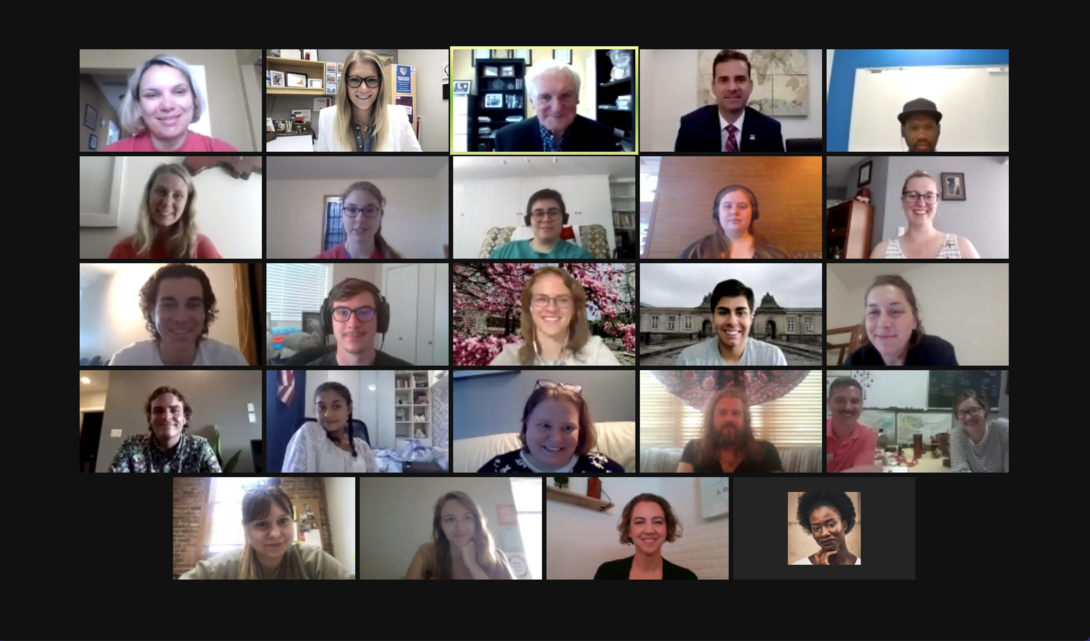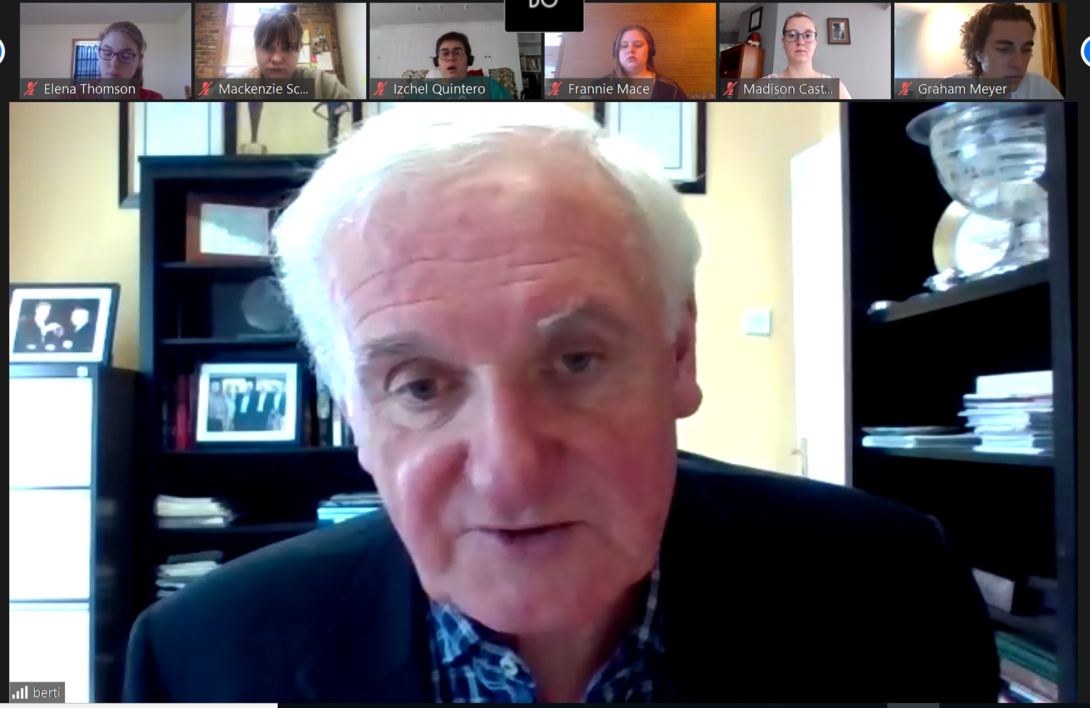
What better way to learn about conflict resolution than first-hand from one of the architects of Ireland’s Good Friday Agreement, former prime minister Bertie Ahern? Or to connect with Yazidi culture by growing a garden with the local community?
In the new summer course “Negotiating Peace: From Conflict to Coexistence” from the Global Studies program, 14 University of Nebraska-Lincoln students are exploring conflict resolution case studies from two countries in different stages of the process: Ireland and Syria.
After participating in a mock mediation of the process that led to the agreement — and gaining negotiation experience — students connected with Ahern via Zoom.
“(It was) an incredible opportunity for students,” Katelyn Kunzman, coordinator with the Office of Education Abroad, wrote in a tweet. She co-developed the course with Emira Ibrahimpasic, assistant professor of practice in the Global Studies program, and they both serve as instructors.

For eight weeks, students will learn theories of conflict management and peace processes; develop analytical, mediation and negotiation skills; and consider their role in the process.
“This course aims to give students a chance to engage with the reality of the behind-the-scenes process that goes into peace negotiations,” Ibrahimpasic said. “They put theory to practice through case studies, mock mediations and interactions with people who have been integral parts of past peace negotiations.”
In addition to Ahern, experts and those affected by conflict provide an array of perspectives from around the world as guest speakers, including: a professor from Trinity College Dublin at Belfast, a public affairs expert who worked at the senior level in government, a politician and journalist who also helped with the Good Friday Agreement, a former United Nations diplomat, an expert who was at the Syria negotiations and a local Syrian refugee.
Another new summer course, the Geography program’s “Ethnographic Field School: Garden, Food and Community Outreach with Yazidi Farmers,” connects students with local Yazidi culture. Partnering with Community Crops and Yazda’s Yazidi Cultural Center, students learn to garden and exchange food ways while raising awareness about the Yazidi community and help them with speaking English. The program was developed by faculty members Gwyneth Talley and Michael Shambaugh-Miller.
The global studies and geography courses are two of Nebraska’s Global Experiences programs, new virtual and global-local experiential learning courses offered as alternatives to traditional study abroad programs. Connected to the learning outcomes of faculty-led education abroad, they support the strategic plans of the College of Arts and Sciences, N2025 and the Forward Together global strategy.
“The Global Experiences programs are exactly the kinds of courses we are continuing to support and elevate to provide students hands-on learning opportunities that prepare them for the realities of today’s interconnected world,” said Josh Davis, associate vice chancellor for global affairs. “These two courses are great examples of what we outlined in Forward Together — how the Education Abroad Office and our faculty partners are reimagining what it means to engage with the world and our local community so students are Future and World Ready.”
Financial support for the courses came from the Global Experiences Innovation Fund, which aims to provide engaging global experiences through hands-on coursework that enables cultural interaction without travel.
The Global Studies course would have been impossible without the support of the fund, Ibrahimpasic said.
“Many of the speakers hail from across the globe, and having a chance to interact with them one-on-one via Zoom has been essential in making this course a success.”
The Global Studies and Geography programs are part of the School of Global Integrative Studies within the College of Arts and Sciences.
Global Experiences opportunities offered by a variety of colleges will continue into the fall semester. Interested students can learn more about them on the Education Abroad website and should register in MyRED before July 26.







